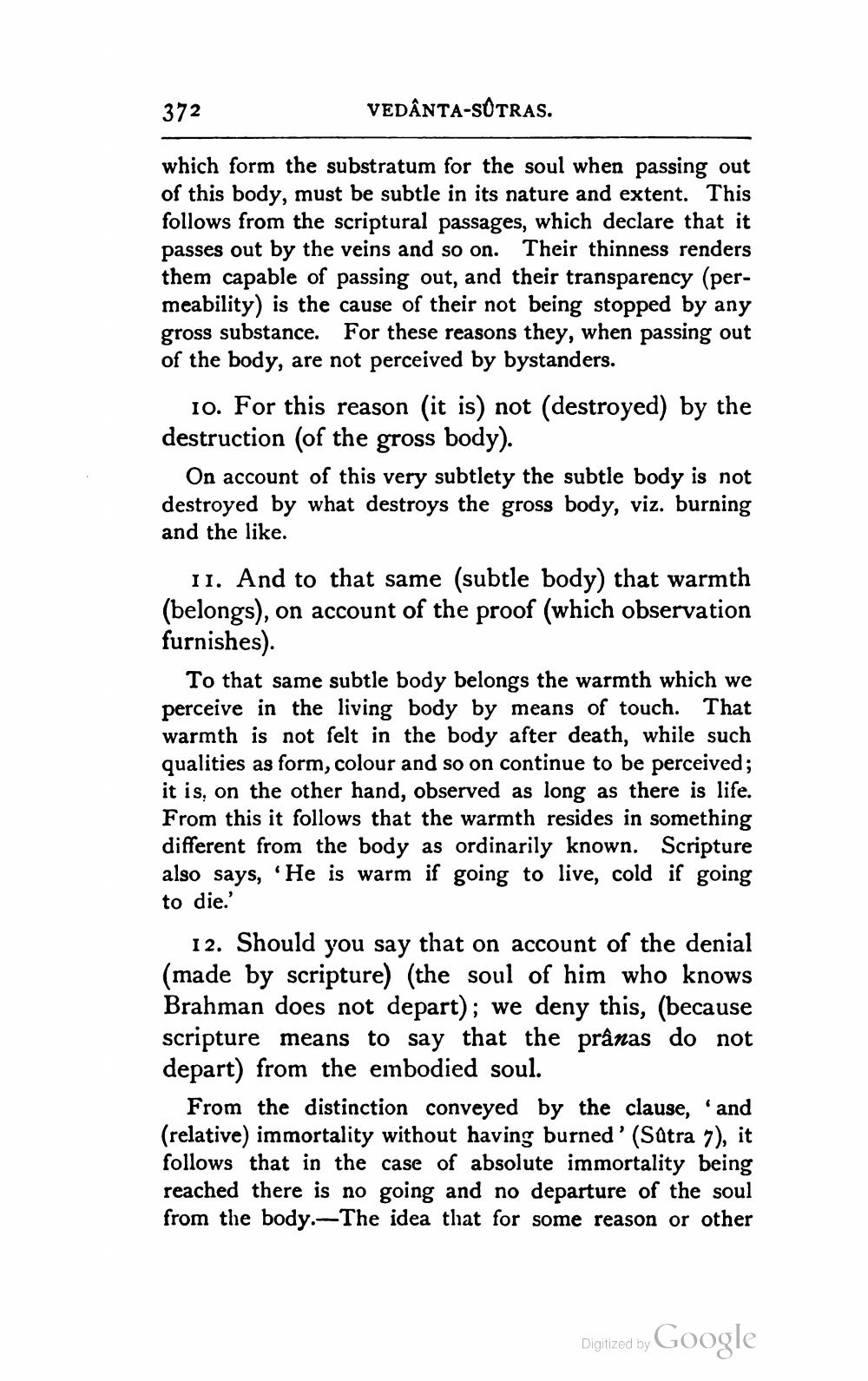________________
372
VEDÂNTA-SOTRAS.
which form the substratum for the soul when passing out of this body, must be subtle in its nature and extent. This follows from the scriptural passages, which declare that it passes out by the veins and so on. Their thinness renders them capable of passing out, and their transparency (permeability) is the cause of their not being stopped by any gross substance. For these reasons they, when passing out of the body, are not perceived by bystanders.
10. For this reason (it is) not (destroyed) by the destruction (of the gross body).
On account of this very subtlety the subtle body is not destroyed by what destroys the gross body, viz. burning and the like.
11. And to that same (subtle body) that warmth (belongs), on account of the proof (which observation furnishes).
To that same subtle body belongs the warmth which we perceive in the living body by means of touch. That warmth is not felt in the body after death, while such qualities as form, colour and so on continue to be perceived; it is, on the other hand, observed as long as there is life. From this it follows that the warmth resides in something different from the body as ordinarily known. Scripture also says, 'He is warm if going to live, cold if going to die.'
12. Should you say that on account of the denial (made by scripture) (the soul of him who knows Brahman does not depart); we deny this, (because scripture means to say that the prânas do not depart) from the embodied soul.
From the distinction conveyed by the clause, and (relative) immortality without having burned' (Satra 7), it follows that in the case of absolute immortality being reached there is no going and no departure of the soul from the body. The idea that for some reason or other
Digitized by
Digitized by Google




